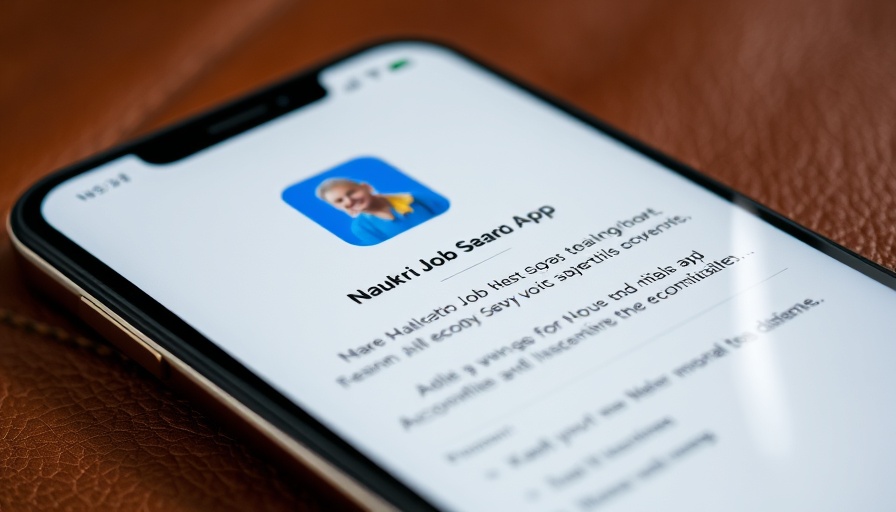
Naukri.com Exposed: A Serious Data Privacy Breach Unveiled
In a startling revelation, Naukri.com, India's leading employment portal, has recently addressed a serious security vulnerability that exposed the email addresses of recruiters on its platform. Discovered by security researcher Lohith Gowda, the issue arose from an insecure API utilized by Naukri's mobile applications, compromising the personal data of numerous recruiters accessing candidate profiles.
Understanding the Risks: The Stakes of Data Exposure
The consequences of this leak extend beyond simple inconvenience; exposed email addresses can serve as fodder for targeted phishing attacks, prompting waves of unsolicited emails and potential scams. As a leading platform for connecting job seekers and recruiters, Naukri’s security misstep brings into focus a crucial aspect of online security. Gowda noted that not only could the email IDs be harvested for spam lists, but they could also end up in public breach databases, exacerbating the risk for every affected recruiter.
Response and Recovery: How Naukri Addressed the Threat
Following the revelation, Naukri took swift action to secure the vulnerability. Alok Vij, from Naukri’s parent company InfoEdge, communicated that enhancements had been implemented to bolster their systems’ security and resilience. This response highlights an essential practice for tech companies—constant vigilance and rapid response to security threats—especially in a year that has seen increasing incidents of data breaches.
The Broader Implication: Navigating Data Privacy in 2025
This incident serves as a dire reminder of the challenges surrounding data privacy as we leap further into the landscape of advanced technologies. With AI integrations and machine learning becoming commonplace in recruitment and business operations, safeguarding user data must elevate in priority. As the digital age expands with transformative innovations, so too must the frameworks that protect personal information from breaches and misuse.
Future Technology: Preparing for Increased Challenges
As we forge ahead into 2025, businesses across industries must brace for disruptions in data privacy and security practices. Adopting AI-powered tools designed for data protection and privacy management will be essential. Solutions like AI-powered encryption and secure data management software will not only help in mitigating risks but will also reaffirm stakeholders' trust in these platforms.
In summary, the breach of recruiter email addresses on Naukri.com serves as a poignant illustration of the vulnerabilities inherent in an increasingly digital world. As users, it is crucial to remain informed about the security measures that protect our personal data.
 Add Row
Add Row  Add
Add 




Write A Comment